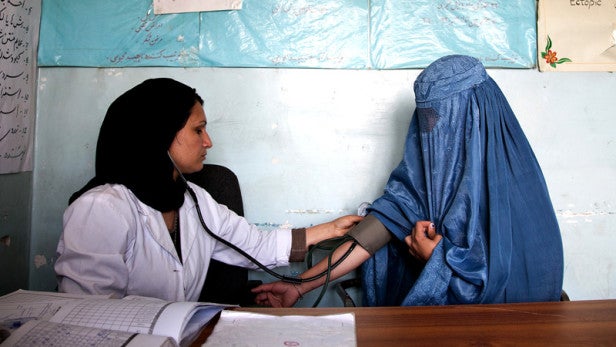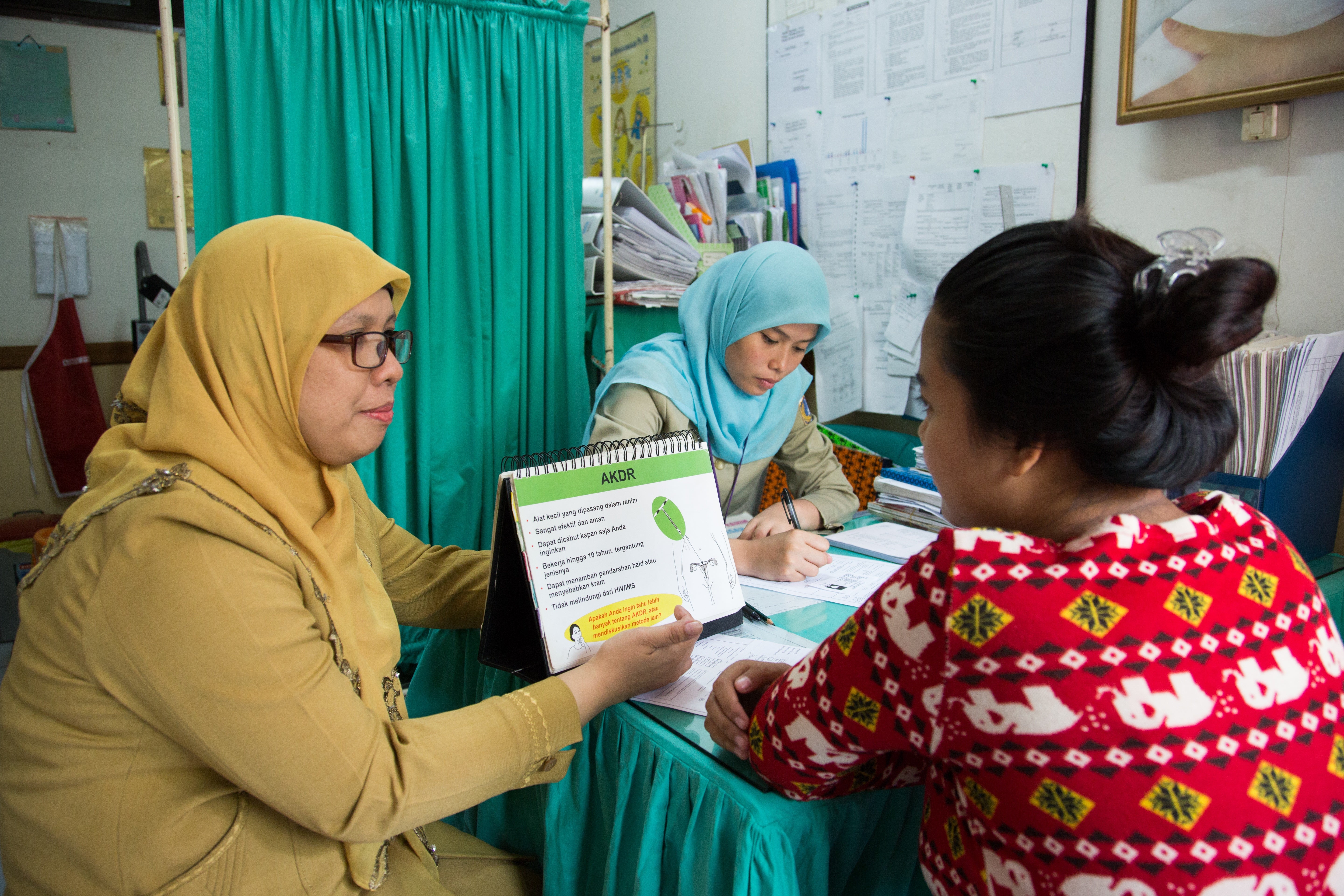PHC in the News
Dear primary health systems, it's time for your checkup
Originally posted on Devex on October 22, 2015.
The human body is made up of 13 organ systems. Within those systems, there are about 60,000 different ways things can go wrong, according to surgeon, MacArthur Fellow and National Book Award finalist Atul Gawande.
Humans have figured out how to prevent many of those afflictions from occurring, to treat them when they do and to reduce suffering in the meantime. But for many people, good health services remain out of reach. And for them, the knowledge gained from thousands of years of health treatment, failure and experimentation goes unused. How do we explain this shortfall?
 Graham Crouch / World Bank / CC BY-NC-ND
Graham Crouch / World Bank / CC BY-NC-ND
“No one doctor or no one clinician at all of any kind can know all of the steps in care. Since we all just have a piece of care, you see the ways that the system around you determines how good you are as a clinician and how well people fare in the system,” Gawande told Devex.
In some cases it’s worse than just not delivering services. Systems assembled to treat people not only fail to heal them, but can inflict harm. Gawande has taken to the page — and to the podium — to look harder at “the idea that our systems make fundamental mistakes, that our systems worsen suffering … and that those are problems that deserve transparency and exposure,” he said.
“Complications,” Gawande’s first book, uncovers a world where surgeons make mistakes and asks how medical professionals learn from things that go wrong. Similar questions can be asked of health systems. The difference is that doctors aren’t usually equipped or expected to look beyond their areas of expertise and responsibility.
As Gawande put it:
A system is a place where you have a bunch of people who only have a piece of a person’s life in their care, and nobody has any visibility into how well that system is performing for that person.”
Last month the prominent health writer moderated the unveiling of a new effort, the Primary Health Care Performance Initiative, launched by the Gates Foundation, World Health Organization and the World Bank. Like Gawande, PHCPI is trying to unlock the mysterious “black box,” where some health systems function well and others fail.
Individual patients are subject to a range of tests and diagnostics to determine what inside their bodies is functioning well and what isn’t, for example. But public health practitioners don’t have the same “vital signs” to check and evaluate for systems as a whole — or at least they haven’t yet.
The differences between a strong and a weak health system aren’t simple. Spending more money on a country’s health system doesn’t mean it will function better. Some countries like the United States spend massively on health systems and still fall short. While others, like Ghana, spend much less and recoup disproportionately better results, Gawande pointed out.
“There’s a black box ... of service delivery, and what we’re trying to do through the Primary Health Care Performance Initiative is get into that black box,” Chris Elias, president of the Global Development Program at the Gates Foundation, told Devex at the PHCPI launch event.
“Are there front-line workers? Do they show up for work? How many patients do they see a day? Are there drugs and vaccines in the clinic? Is the supply chain functioning? Is the system able to follow people over time?
… There are important elements of a high quality system that are captured in this set of indicators that we’re calling vital signs,” Elias explained.
PHCPI will track more indicators than that — 25 in total — but key to all of them is that they are designed to generate feedback about system function, not just about one particular ailment or treatment.
Organizations like the Gates Foundation are heavily invested in treatments, tools and technologies that can benefit health, but all of the foundation’s investments rely on a viable health system to deliver them to people. In most cases, service delivery isn’t happening in hospitals by specialists, but in communities by primary health care professionals. That’s a good thing because it’s a “highly cost-effective way to manage the health of a population,” Elias said. But it’s also where information gaps are most acute. Of 135 low- and middle-income countries, Uganda is the only with data for all the indicators.
Maternal and child health improvements depend on a set of roughly 30 well-understood interventions. Vaccination campaigns, similarly, rely on well-known drugs. In both cases delivery is the challenge. That’s not the case with primary health care.
“Primary health care is in a very different space. We haven’t been able to describe what the most lifesaving, most critical things are that we should be delivering to make a successful system,” Gawande said.
 Bill & Melinda Gates Foundation/Prashant Panjiar
Bill & Melinda Gates Foundation/Prashant Panjiar
“This is the beginning of a long agenda,” Gawande said.
Governments and donors have invested a lot of time and money in the “daunting” work of building maternal and child health systems and making surgery available to be people who need it. But primary health care, well-recognized as a weak point in the global health system, is where the vast majority of health care happens, he added, noting, “We weren’t even acknowledging and tackling this. We’re at the starting point.”
As with any data initiative, PHCPI will have to show the information it’s generating is useful to primary health care practitioners, or it could end up another check-the-box exercise that increases health managers’ paperwork burden but not their effectiveness.
“What information matters to the people who have to make decisions? Let’s not just measure things because we can,” Elias said, adding that Gates wants more comprehensive data about health system performance so the foundation can achieve better results for the money it invests.
Gawande pointed to a surprising element of the PHCPI launch discussion, which featured remarks from Liberian President Ellen Johnson Sirleaf and Ghanaian President John Dramani Mahama, among others. The heads of state were ready and willing to discuss failures and shortfalls in their country’s health systems.
“You heard no defensiveness up there,” Gawande told Devex. “To me this is a culmination of being able to define the next agenda, which is to make the invisible, pretty poor performance of our health systems … visible,” Gawande said.
There are places that do remarkably well under extremely difficult circumstances — which might be just the places to turn to for answers, he added.
To read additional content on global health, go to Focus On: Global Health in partnership with Johnson & Johnson.
Michael Igoe is a global development reporter for Devex.
